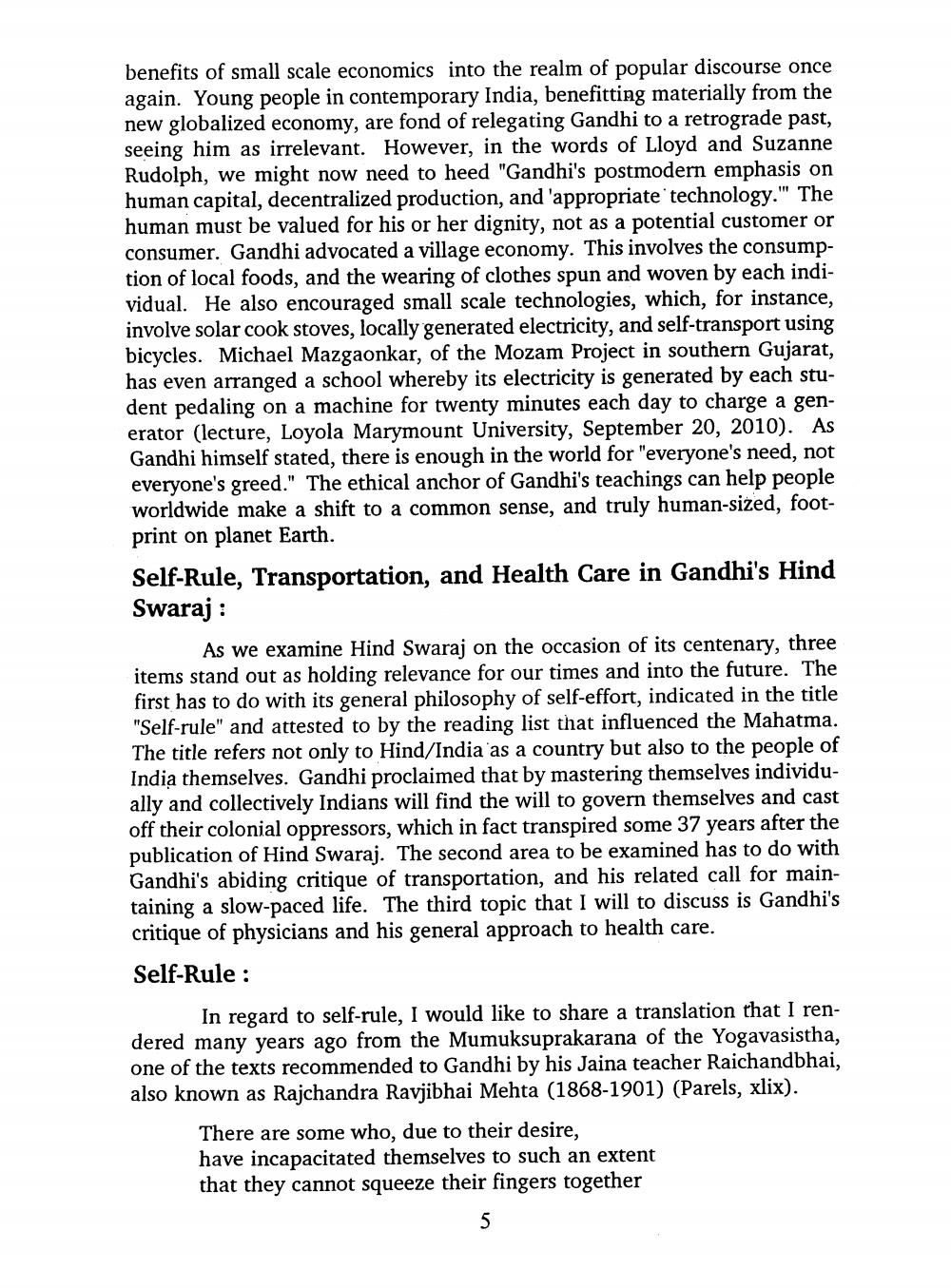________________
benefits of small scale economics into the realm of popular discourse once again. Young people in contemporary India, benefitting materially from the new globalized economy, are fond of relegating Gandhi to a retrograde past, seeing him as irrelevant. However, in the words of Lloyd and Suzanne Rudolph, we might now need to heed "Gandhi's postmodern emphasis on human capital, decentralized production, and 'appropriate technology." The human must be valued for his or her dignity, not as a potential customer or consumer. Gandhi advocated a village economy. This involves the consumption of local foods, and the wearing of clothes spun and woven by each individual. He also encouraged small scale technologies, which, for instance, involve solar cook stoves, locally generated electricity, and self-transport using bicycles. Michael Mazgaonkar, of the Mozam Project in southern Gujarat, has even arranged a school whereby its electricity is generated by each student pedaling on a machine for twenty minutes each day to charge a generator (lecture, Loyola Marymount University, September 20, 2010). As Gandhi himself stated, there is enough in the world for "everyone's need, not everyone's greed." The ethical anchor of Gandhi's teachings can help people worldwide make a shift to a common sense, and truly human-sized, footprint on planet Earth.
Self-Rule, Transportation, and Health Care in Gandhi's Hind Swaraj :
As we examine Hind Swaraj on the occasion of its centenary, three items stand out as holding relevance for our times and into the future. The first has to do with its general philosophy of self-effort, indicated in the title "Self-rule" and attested to by the reading list that influenced the Mahatma. The title refers not only to Hind/India as a country but also to the people of India themselves. Gandhi proclaimed that by mastering themselves individually and collectively Indians will find the will to govern themselves and cast off their colonial oppressors, which in fact transpired some 37 years after the publication of Hind Swaraj. The second area to be examined has to do with Gandhi's abiding critique of transportation, and his related call for maintaining a slow-paced life. The third topic that I will to discuss is Gandhi's critique of physicians and his general approach to health care.
Self-Rule:
In regard to self-rule, I would like to share a translation that I rendered many years ago from the Mumuksuprakarana of the Yogavasistha, one of the texts recommended to Gandhi by his Jaina teacher Raichandbhai, also known as Rajchandra Ravjibhai Mehta (1868-1901) (Parels, xlix).
There are some who, due to their desire, have incapacitated themselves to such an extent that they cannot squeeze their fingers together
5




